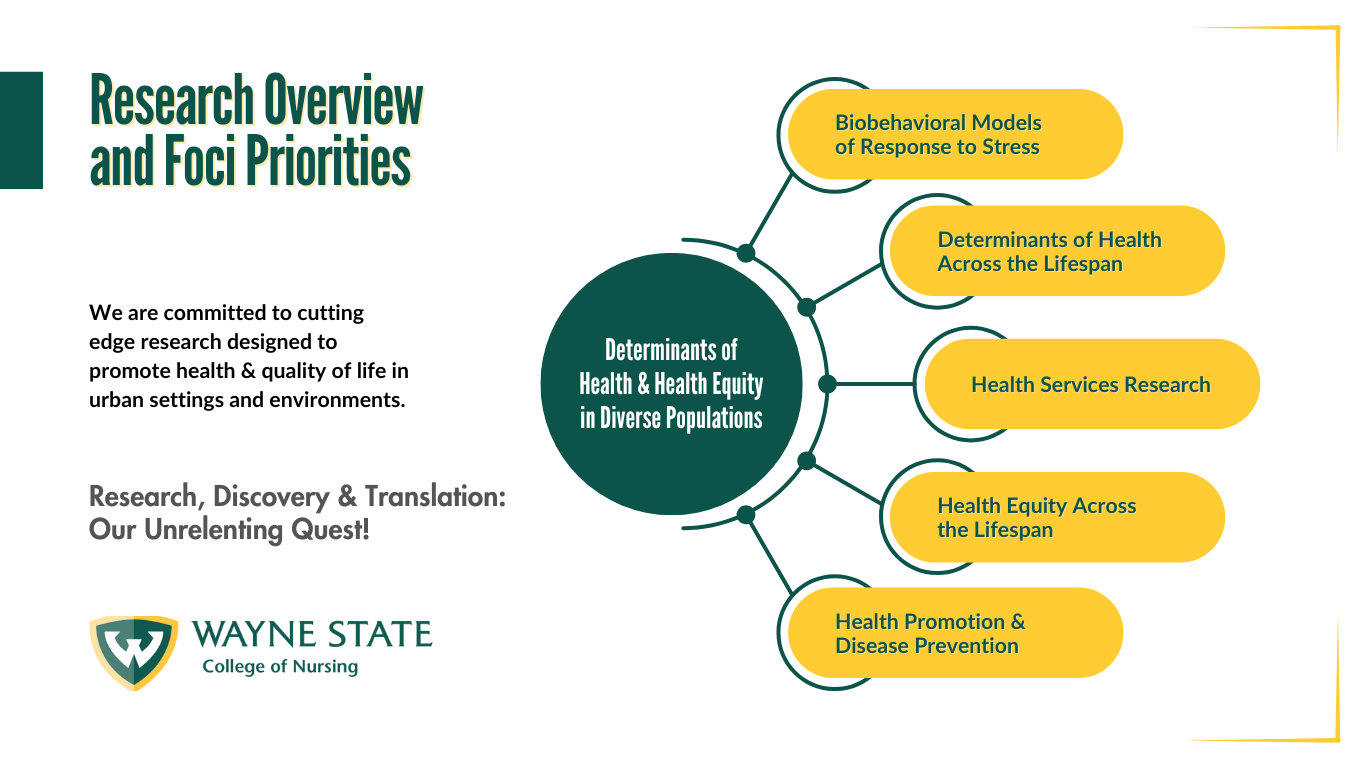Urban health research in the College of Nursing
The Wayne State University College of Nursing is dedicated to supporting the university’s mission and priority to advance research in urban health as we support our commitment to community partnerships and engagement.
The College of Nursing has a long and strong commitment to research and scholarship. Our outstanding faculty of nurse scientists conduct interdisciplinary research dedicated to improving urban health and publish research findings in influential peer-reviewed journals. The college has and continues to define urban health research as "the study of the determinants and distribution of health and disease in populations living within an urban context" (Galea & Vlahov, 2005). To do so, we recognize the value of nurse scientist collaboration with our clinician colleagues, which facilitates findings being translated to the clinical practice where they are the most beneficial to patients, their caregivers and the communities we serve.
Research focus areas
Research conducted by our faculty, postdocs and students generates new knowledge and clinical insights to improve the health of individuals, families, caregivers, and urban communities in our region, across the United States and worldwide.
At the heart of Wayne State University's College of Nursing's research is Determinants of Health and Health Equity in Diverse populations, with faculty conducting research in 5 foci areas, including biobehavioral models of response to stress, determinants of health across the lifespan, health services research, health equity across the lifespan, and health promotion and disease prevention.
